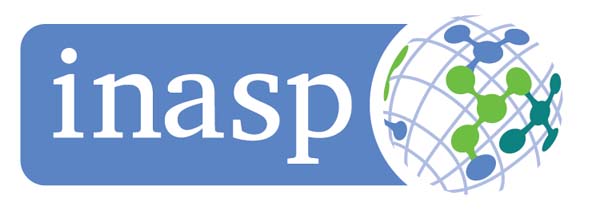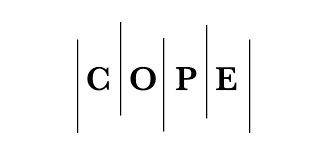Artificial Intelligence in the Educational System: Theoretical Perspectives and a Practical Application for Cheating Detection in Examination Halls"
DOI:
https://doi.org/10.29304/jqcsm.2025.17.22202Keywords:
Artificial Intelligence in Education, Cheating Detection, Face and Eye Tracking, OpenCV, Support Vector Machine, Real-Time MonitoringAbstract
This article reviewed some of the roles played by artificial intelligence (AI) as a modern technology in the educational system. We also tested an AI-based application to detect cheating during exams by analyzing facial and eye movements. The system uses computer vision techniques via the OpenCV library, along with an alert device designed based on Arduino, allowing for real-time monitoring and response. Haar Cascade algorithms were used to detect faces and eyes, and head movement and gaze direction were tracked using optical flow and motion center calculation techniques. An SVM classification algorithm was used to identify suspicious behavior based on features extracted from the image.
Experiments showed that the proposed system achieved an accuracy of more than 90% in detecting cheating cases in real time. There are also some challenges such as poor lighting. The research is considered a contributing factor in enhancing academic integrity in educational institutions. The results indicate that AI-based surveillance systems can be effective in educational settings, and suggest future development of the system using deep learning techniques and multiple cameras to improve performance.
Downloads
References
W. Holmes, M. Bialik, and C. Fadel, “Artificial Intelligence in Education. Promise and Implications for Teaching and Learning,” 2019. [Online]. Available: https://www.researchgate.net/publication/332180327
B. Williamson and R. Eynon, “Historical threads, missing links, and future directions in AI in education,” Jul. 02, 2020, Routledge. doi: 10.1080/17439884.2020.1798995.
L. Chen, P. Chen, and Z. Lin, “Artificial Intelligence in Education: A Review,” IEEE Access, vol. 8, pp. 75264–75278, 2020, doi: 10.1109/ACCESS.2020.2988510.
O. Mohammed, A. Nandy, O. M. Jasim, and P. Baranwal, “ARTIFICIAL INTELLIGENCE FOR EFFICIENT ADMINISTRATIVE PROCESSES IN IRAQI HIGHER EDUCATION,” 2025. [Online]. Available: https://www.researchgate.net/publication/388738567
W. Park and H. Kwon, “Implementing artificial intelligence education for middle school technology education in Republic of Korea,” Int J Technol Des Educ, vol. 34, no. 1, pp. 109–135, Mar. 2024, doi: 10.1007/s10798-023-09812-2.
N. D. Farhan, B. H. Sadiq, M. H. Zwayyer, and B. A. Arnout, “The impact of using artificial intelligence techniques in improving the quality of educational services/case study at the University of Baghdad,” Front Educ (Lausanne), vol. 9, 2024, doi: 10.3389/feduc.2024.1474370.
R. Luckin, W. Holmes, M. Griffiths, and L. B. F. Pearson, “Intelligence Unleashed An argument for AI in Education,” 2016.
D. Touretzky, C. Gardner-Mccune, F. Martin, and D. Seehorn, “Envisioning AI for K-12: What Should Every Child Know about AI?,” 2019. [Online]. Available: https://playground.tensorflow.org
R. H. Ali, “Artificial intelligence techniques to predict the performance of teachers for kindergarten: Iraq as a case study,” Evol Intell, vol. 17, no. 1, pp. 313–325, Feb. 2024, doi: 10.1007/s12065-022-00731-0.
G. K. W. Wong, X. Ma, P. Dillenbourg, and J. Huan, “Broadening artificial intelligence (AI) education in K-12: Where to start?”
V. Neha, “UNDERSTANDING THE SCOPE OF RESEARCH IN EDU-TECH DOMAIN THROUGH ARTIFICIAL INTELLIGENCE AND DATA MINING,” 2020.
M. Coeckelbergh, “Ethics of artificial intelligence: Some ethical issues and regulatory challenges,” 2019, doi: 10.26116/techreg.2019.003.
Seong-Won Kim and Youngjun Lee, “The Artificial Intelligence Literacy Scale for Middle School Students,” 2022, doi: 10.9708/jksci.2022.27.03.225.
H. Hyung-Jong1 et al., “Analysis of elementary school teachers’ perceptions of education using artificial intelligence The Analysis of Elementary School Teachers’ Perception of Using Artificial Intelligence in Education,” vol. 18, no. 7, pp. 47–56, 2020, doi: 10.14400/JDC.2020.18.7.047.
S. Wang, F. Wang, Z. Zhu, J. Wang, T. Tran, and Z. Du, “Artificial intelligence in education: A systematic literature review,” Oct. 15, 2024, Elsevier Ltd. doi: 10.1016/j.eswa.2024.124167.
A. A. Hussein, “Artificial Intelligence Applications in Virtual Learning Environments to Improve Science Education in Iraqi Primary Schools,” 2024. [Online]. Available: https://www.researchgate.net/publication/385279997
S. Van Vaerenbergh and A. Pérez-Suay, “A Classification of Artificial Intelligence Systems for Mathematics Education,” Jul. 2021, [Online]. Available: http://arxiv.org/abs/2107.06015
Ratnam, Tomer, and Sharma, “ChatGPT: Educational Artificial Intelligence,” International Journal of Advanced Trends in Computer Science and Engineering, vol. 12, no. 2, pp. 84–91, Apr. 2023, doi: 10.30534/ijatcse/2023/091222023.
K. Malinka, M. Peresíni, A. Firc, O. Hujnák, and F. Janus, “On the Educational Impact of ChatGPT: Is Artificial Intelligence Ready to Obtain a University Degree?,” in Annual Conference on Innovation and Technology in Computer Science Education, ITiCSE, Association for Computing Machinery, Jun. 2023, pp. 47–53. doi: 10.1145/3587102.3588827.
V. Yuskovych-Zhukovska, T. Poplavska, O. Diachenko, T. Mishenina, Y. Topolnyk, and R. Gurevych, “Application of Artificial Intelligence in Education. Problems and Opportunities for Sustainable Development,” Brain (Bacau), vol. 13, no. 1Sup1, pp. 339–356, Mar. 2022, doi: 10.18662/brain/13.1sup1/322.
M. Ryu and S. Han, “The Educational Perception on Artificial Intelligence by Elementary School Teachers,” Journal of The Korean Association of Information Education, vol. 22, no. 3, pp. 317–324, Jun. 2018, doi: 10.14352/jkaie.2018.22.3.317.
M. Tedre et al., “Teaching machine learning in K-12 Classroom: Pedagogical and technological trajectories for artificial intelligence education,” IEEE Access, vol. 9, pp. 110558–110572, 2021, doi: 10.1109/ACCESS.2021.3097962.
G. Moukhliss, R. F. Hilali, and H. Belhadaoui, “Intelligent solution for automatic online exam monitoring,” International Journal of Electrical and Computer Engineering, vol. 13, no. 5, pp. 5333–5341, Oct. 2023, doi: 10.11591/ijece.v13i5.pp5333-5341.
A. Singh and S. Das, “A Cheating Detection System in Online Examinations Based on the Analysis of Eye-Gaze and Head-Pose,” European Alliance for Innovation n.o., Jun. 2022. doi: 10.4108/eai.16-4-2022.2318165.
Downloads
Published
How to Cite
Issue
Section
License
Copyright (c) 2025 Ahlam i Abbas Bett, Ghufran Abbas Betti, Ali H. Naser

This work is licensed under a Creative Commons Attribution-NonCommercial-NoDerivatives 4.0 International License.













